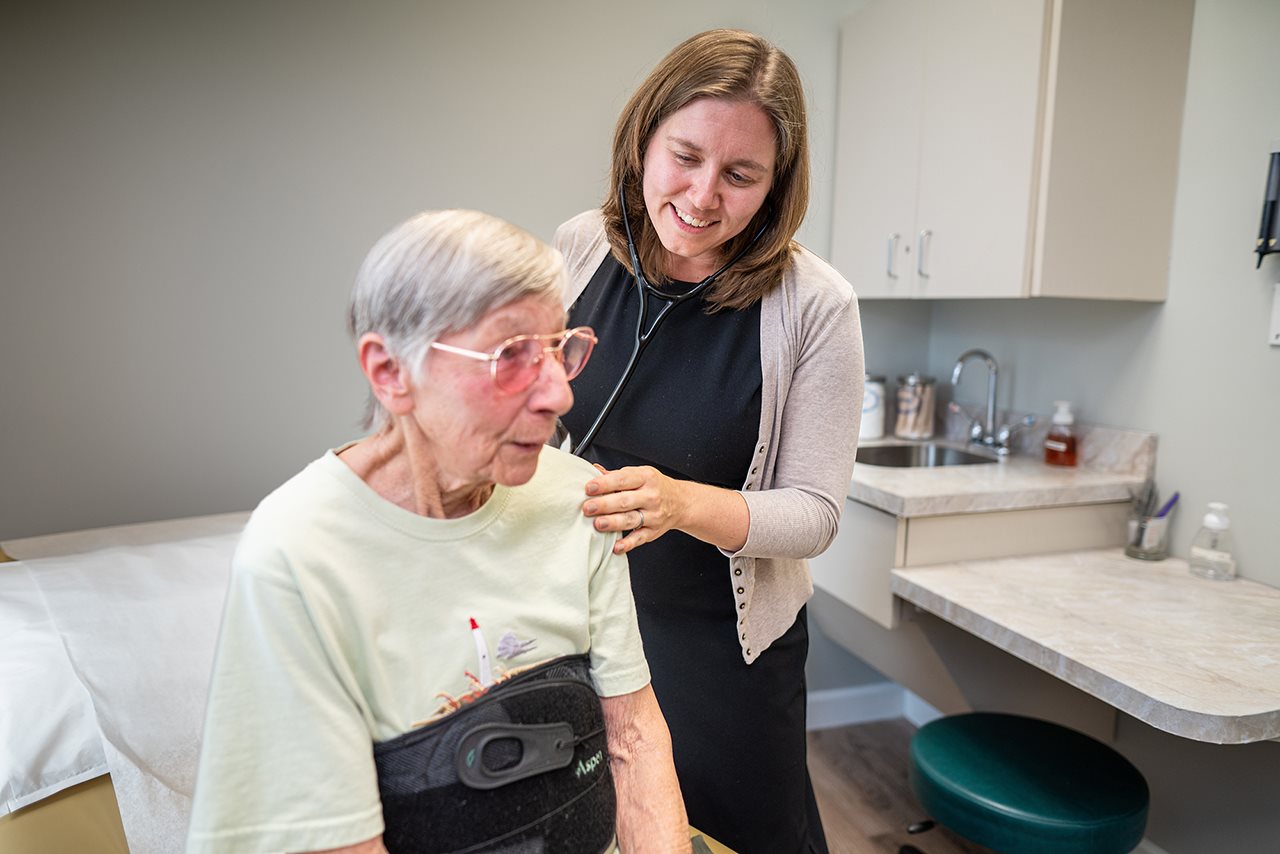Value-based care: How primary care doctors are succeeding with Aledade partnership
Posted: May 15, 2025 | Word Count: 1,051

For decades, the American health care system has compensated doctors for each visit, test and procedure they provide — regardless of outcome. While fee-for-service remains important for many health care organizations, those adopting value-based care are finding it can be effective for improving patient outcomes and creating financial sustainability.
According to the Centers for Medicare & Medicaid Services (CMS), this 19-year-old model has been steadily growing — more than 600,000 physicians and non-physicians were participating in an ACO in 2024, an increase of more than 35,000 from 2023.1-2 The goal of value-based care is simple: better care, lower costs and healthier communities.
Why?
According to CMS, patients whose primary care organization has incorporated value-based care may have an easier time navigating their care while gaining access to educational resources to help them better understand their health issues.3 Their doctors can make more data-driven, personalized care decisions and treat the whole person, not just a specific health issue. This can lead to a more impactful and efficient doctor and patient interaction.
"I think value-based care is important for patients because it really does set the tone for wanting to focus on quality of care provided," said Joel Ramirez, M.D., chief medical officer at Camarena Health in California. "It means looking at the patient in a comprehensive way. That's looking not only at the medical diagnosis they may carry, but also what challenges they may have to lead a healthy life."
Doctors who want to remain independent and still provide their patients with excellent care face many challenges, including financial pressures, navigating administrative workloads and fluctuating reimbursements, which can lead to hardship, according to the American Medical Association.4
Sohail Khwaja, executive director of Columbia Medical Practice in Maryland, said, "I believe the reason people have shied away from primary care is because of the burden of documentation. Everything that is required of primary care is very, very time-consuming, and value-based care is changing that … The focus is, again, on seeing a limited number of patients, but taking better care of them, as opposed to continuing to see more and more patients."
For those looking to practice value-based care, the adoption can be made simpler thanks to physician-enablement companies like Aledade, founded in 2014.
Aledade partners with primary care organizations to help them succeed in value-based care models. Aledade has more than 2,400 practices and health centers across 46 states and Washington, D.C., serving nearly 3 million patients.

The benefits of value-based care
Aledade's accountable care organizations (ACOs) provide preventive guidance and resources so clinicians are rewarded for keeping people healthy, not just for the quantity of procedures they perform. Aledade ACOs have generated more than $2 billion in savings, enabling partners to deliver better care, reward and hire staff, enhance their facilities and stay independent.5
Maureen Padden, M.D., of Emerald Coast Medical Group in Pensacola, Florida, said, "When you work with an ACO like Aledade that brings resources and experience to the table, you can thrive and not just survive. You can work smarter, or you can work harder. When you work smarter, you're happier, your patients are happier, your family is happier, your earnings are better and patients get great care."

Because value-based care helps doctors focus on early interventions and managing chronic conditions, patients can experience fewer complications and improved quality of life. As a result, doctors can cut costs by reducing hospital readmissions and avoidable procedures, easing administrative workloads and boosting staff satisfaction. Aledade offers experts who provide administrative support and clinical guidance to ease the transition to successful value-based care.

In 2023, Aledade partners avoided nearly 64,000 hospitalizations and emergency visits.6 Patients can enjoy a more personalized, coordinated care experience as their team collaborates across specialties to tailor treatment plans for long-term wellbeing.
Addressing common concerns from clinicians
A. Will this take away my clinical autonomy?
No. Data-driven insights sourced from across the care continuum empower doctors' decision-making, supplying them with more information to make the best choices for their patients.
B. Will I lose money moving away from fee-for-service?
One of the key advantages of value-based care is the potential to reduce dependence on undervalued fee-for-service payments by promoting financial stability through quality measures.7
The lack of funding for primary care under the fee-for-service payment system underscores the significance and necessity of transitioning to value-based care — particularly for primary care organizations that wish to stay independent.
Other payment structures include capitation — where doctors receive a fixed payment per patient — bundled payments — which cover all services related to a condition over a set period — and performance-based payments, which reward doctors for meeting specific quality measures.
C. Is the transition too complex?
The transition to value-based care can be complicated. But the right ACO partner will give you a dedicated support team, set clear expectations and establish a reasonable, comfortable transition timeline.
The transition is further simplified through financial, administrative and technological solutions that help primary care organizations maintain their independence while improving their value-based care performance over time.
"Joining Aledade has been a game-changer for our practice. Their data-driven approach and hands-on support have allowed us to focus on what matters most — delivering high-quality care to our patients," Cara Dennison, practice administrator for Andover Family Medicine in Kansas, said.
What are the best value-based care options for your practice?
When assessing value-based care options, it's important to consider partnerships that can enhance success.
The best results, backed by research, have been among primary care organizations that partner with physician-enablement companies, such as Aledade.8
"It's a deeper layer of care you don't have when you're out here alone," Jeni Barham, chief quality control officer at Mainline Health Systems in Arkansas, said. "There's always more to the patient and more to the picture that you don't get to see unless you have a partner like Aledade that can get that information for you."
Visit aledade.com/more-information to get started.
—------------
1 2024 Shared Savings Program Fast Facts, CMS
2 2023 Shared Savings Program Fast Facts, CMS
4 "8 threats facing physician private practices," American Medical Association
5 Aledade Expands Value-Based Care Network, Adding More than 500 Practices for 2025
6 Aledade Saved Medicare more than $800 Million in 2023
7 "Value-based Payment Models for Primary Care," American Academy of Family Physicians
8 Value-Based Care Enablement Services 2024
Includes Multiple Photos




